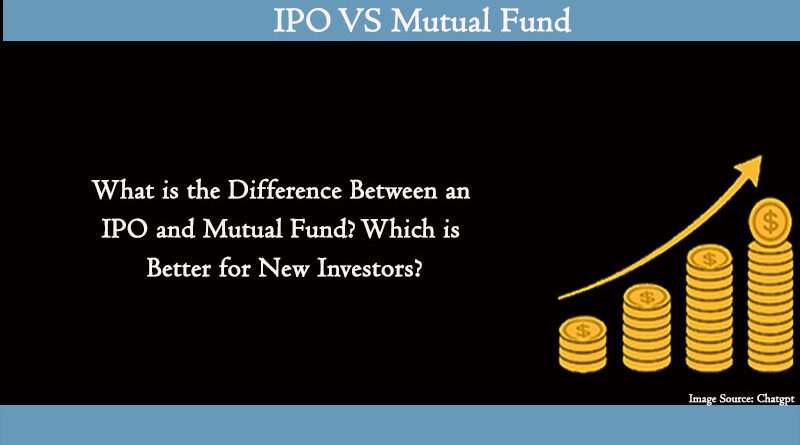What is the Difference Between an IPO and Mutual Fund? Which is Better for New Investors?
Navigating the Investment Maze: Two Paths Diverged
Individuals who aim at increasing the size of their wealth have multiple investment vehicles in the financial markets. Initial Public Offerings (IPOs) and mutual funds are among the most spoken of, and they have their own channels for generating wealth. New investors usually have this situation where they wonder which direction offers them higher returns with the safety of their financial targets. Learning the basic differences in these investment vehicles will be important in making informed decisions and matching them with risk-taking capacities as well as investment as a goal.
What is IPO: The Corporate Debut That Changes Everything
What is IPO? An initial public offering (IPO) is the transaction when a privately owned company initially offers the shares of the company to the public, thus converting to a publicly owned entity. At this stage, the businesses sell additional stock to get funds to acquire additional capital, to cut debt, or for other corporate reasons. Considering that investors who invest in IPOs will be the part-owners of the company, they will directly gain or lose based on the performance and market rating of the company. The IPO process consists of substantial due diligence, regulatory matters, and underwriting by investment banks so that the issue is introduced to the market in an apt manner.
Mutual Funds: Where Many Hands Create Financial Magic
Mutual funds are a great way for many individuals to diversify their investments by pooling their assets. These assets include money market instruments with short maturity periods, bonds, and shares. Skilled fund managers regularly review these assets, who base their strategic decisions on market data. The collective investment strategy enables the individual investors to gain exposure to highly diversified portfolios that they can only effortlessly replicate when they have sizeable investment capital. These pooled funds are invested in securities by fund managers so as to yield revenue or even capital gains to the investors, thus each of the shareholders contributes proportionally to the lumbering of the fund.
The Rollercoaster vs. The Steady Ship: Understanding Risk Dynamics
The risk profiles of investment in IPO are usually higher than the risk profiles of mutual funds. New publicly traded corporations usually have no history of trading; therefore, it is hard to predict their future performance. The sentiment in the market, the trend in the industry, and the fundamentals of the company may contribute to the sensitivity of the prices of shares offered in IPO, which may lead to large fluctuations in the initial stages of trading. In contrast, the mutual funds do provide an inherent diversification of investing among various securities, industries, and occasionally even geographic distribution. This diversification is a way of countering risk relative to the performance of individual companies, which will offer more consistent returns in the long term.
Breaking Down the Financial Barriers: Who Gets to Play?
These investment options differ greatly in terms of accessibility. In many cases, the minimum investments to attend the IPO are high, and people can access the IPO or apply with the help of special platforms or brokers. Retail investors are uncertain about whether they will receive allocation in in-demand IPOs, which frequently get oversubscribed. The entry barrier presented by Mutual funds, however, is usually considerably low, with the minimum amount on these funds commonly pegged at relatively low figures. The ease of accessibility of mutual funds also makes them quite an appeal among new investors who would otherwise rather start with token amounts in the initial phase of their investment process.
The IPO vs. The Mutual Fund: Who Steers Your Investment Ship?
The benefits of investing in mutual funds are that they offer professional management skills so that the market does not have to be monitored and decisions made on a constant basis. Fund managers organize a lot of research work, study market trends, and move portfolios in keeping with changing market conditions. IPO investments presuppose consideration of investment research conducted by the investors, knowledge of company fundamentals, and taking their own decisions regarding the entry and exit points.
The Verdict: Starting Smart in the Investment Game
Mutual funds usually prove a more appropriate entry point to new investors because of their diversification undertaken at the fund level, professional management, and reduced risk levels. This systematic mode of investment and the lower probability of volatility make them the right platform to gain confidence in investment and market dynamics. Although IPOs are potentially a great money maker, much more market expertise and risk appetite would be needed, which can be acquired over time and often would come with experience.



